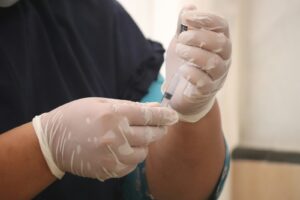RSPH launches refreshed public health toolkit for healthcare professionals
The Royal Society of Public Health (RSPH) has published a toolkit to support healthcare professionals to record and measure their public health impact
The framework, Everyday Interactions: A Refresh, created in partnership with Public Health England (PHE), provides an update of the resources developed in 2017, following an evaluation throughout 2019.
The updated report includes an evaluation of the toolkit, comprising a number of case studies, findings from qualitative interviews and a survey of healthcare professionals.
The survey found that more than three in four professionals (76%) stated that the impact pathways provided them with an opportunity to reflect on the practice and delivery of healthy conversations.
While more than half said that the pathways made it easier to record brief interventions/healthy conversations (61%) and to more routinely record healthy conversations (56%).
Shirley Cramer, chief executive of RSPH, said: ‘We are pleased to launch this refreshed toolkit in collaboration with Public Health England.
‘By focusing on the public health impact of a broad range of healthcare professions, from nurses and midwives, to dentists, allied health professionals and pharmacists, this toolkit equips and supports professionals to engage with patients in order to support them to live healthier lives, and vitally, find out what matters to them.’
The RSPH said the toolkit provides clear and concise guidance for health and care professionals wishing to record and measure their public health impact based on the Making Every Contact Count (MECC) framework.
The framework is part of a national initiative in which public-facing workers are encouraged to make contact with patients, service users or the public as an opportunity to support, encourage or enable them to consider health behaviour changes such as stopping smoking or improving their sense of wellbeing.
The report also contains economic modeling of the benefits of using MECC in routine clinical practice.
Helen Donovan, professional lead for Public Health Nursing at the Royal College of Nursing, said: ‘I really welcome the resource which is designed to support nurses and all health care professionals record measure and monitor those everyday contacts which support people to adopt healthier lifestyles or support early recognition and intervention.
‘Using the tools can help ensure these actions are valued and resources properly targeted to where they are needed to improve the public’s health and wellbeing. The resource is not a replacement for investment in the nursing workforce that is needed to deliver the support some patients need to live healthier lives.’
Photo Credit – Pixabay
















